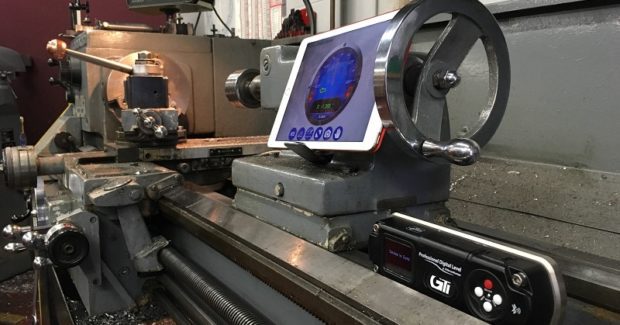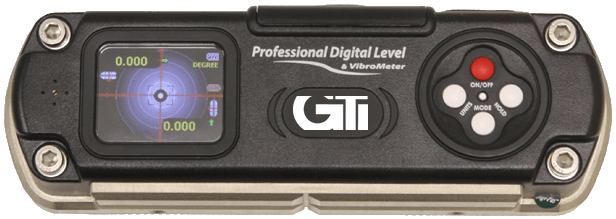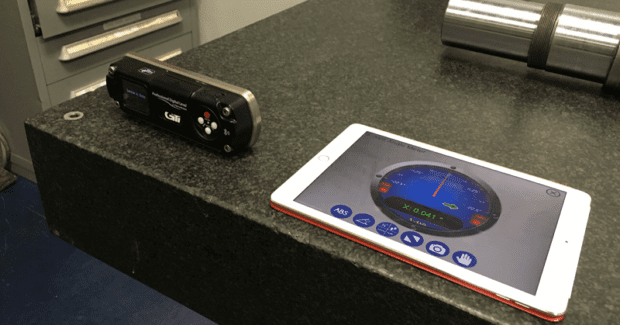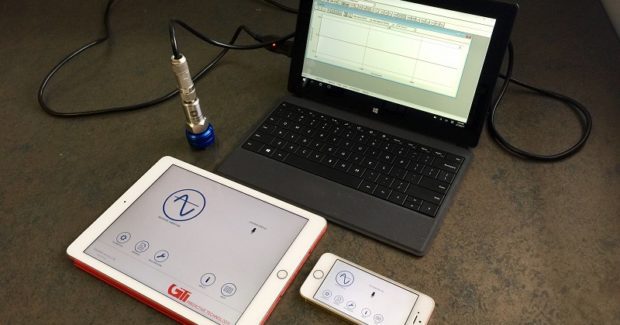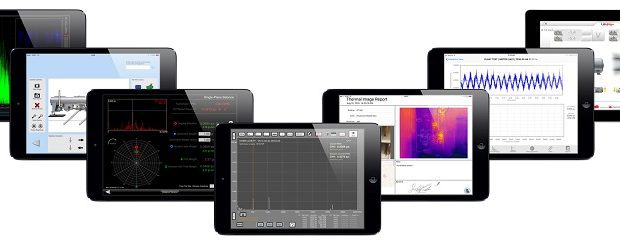Acorns, User Experience and Optimization
With the advent of technologies like the iPad, the field of predictive maintenance has now become an accessible, cost effective and achievable goal for many companies, from small shops to large factories. They can base an entire predictive maintenance platform on the iPad and utilize technology that is constantly improving.
Posted: September 11, 2017
“The creation of a thousand forests is in one acorn. ~ Ralph Waldo Emerson”
Acorn, meet iPad.
I saw the above quote along the Tampa Riverwalk while attending the Electrical Apparatus Service Association, Inc. (EASA; St. Louis, MO) convention. It made me ponder the infinite possibilities of that single acorn, and in turn, the boundless ways that technology influences our daily life. With the advent of technologies like the iPad, the field of predictive maintenance has become an accessible and achievable goal for many businesses. Since the beginning of the tablet revolution, companies have been searching for ways to exploit this new mobile capability across various industries. The iPad allows anyone, from small companies to large multi-facility corporations, to implement and commit to a predictive maintenance program by utilizing technology that is constantly improving.
The field of predictive maintenance has come a long way since its inception, which originated with condition-based maintenance practices years ago. Machines can now be monitored for various conditions, giving management the ability to predict and plan for downtime. Out of this cloud-based industrial revolution have come numerous systems with multiple tools and programs that are cost prohibitive for many shops, take days or weeks of training, and have costly maintenance service agreements. But there are certain cost efficient systems available that can leverage the best and most prevalent technologies available, such as the iPad and Apple app store.
One thing that makes the iPad so successful is that its focus was placed on the user experience, an often-ignored piece of the puzzle in our metalworking industry. In utilizing the iPad, there is no longer the need to carry around a multitude of clunky boxes for a single reading. The predictive maintenance arsenal is now run from a technology that many of us already own, which means the technology and software can be leveraged for its enhanced user experience. The iPad’s familiarity and easy to use interface allows for quick adoption and minimized training. Need vibration analysis? There’s an app for that. Field or shop precision machine balancing? There’s an app for that too. Laser shaft alignment? You get the point. An entire predictive maintenance platform can be based on the iPad, from vibration analysis to balancing and much more.
“Why iPad?” and “Is this available for other tablets?” are questions that so many shops are now asking. The answer is no, and let me explain why:
- Apple values its developers. They are also concerned with the integrity of the final products that are sold through their app store. Beta versions on new IOS software upgrades are received by a technology supplier months before they are released to the public. This allows a supplier of predictive maintenance (PdM) technology, for example, to rigorously test and update their apps, if need be, in order to be compatible with the newest operating system. That’s not all. Not only does the supplier test their PdM apps, but Apple does as well. All apps sold through the app store must be vetted for accuracy and quality.
- Environment. Think about how and where PdM products are used. Shop floors can be dangerous and employee safety is top of mind when monitoring machines. Machines that utilize various types of lubrication also need to be monitored. An iPad should be placed in an IT 67 rated rugged case approved for Class 1 Div 2.
- Amenities. At the end of the day it’s still an iPad and it has many functions outside of PdM apps. The wealth of commercially available accessories makes this a cost effective, multi-purpose tool on which you can download apps of your choosing to augment your PdM strategy . . . or download books, games and entertainment apps.
- Apple App store. Most of us are familiar with the way an app store works. Using your tablet, you log onto the app store, purchase your app and it immediately starts downloading. In this same manner, you can now own VibePro (our vibration analysis software) and will receive free upgrades every single time that app is updated. Even shops that purchased our vibration analysis software years ago are still receiving free updates.
This type of PdM platform, unlike other systems that have costly annual maintenance fees, is cost effective. Through the app store you are only charged once for the app – again, considering the user experience, why pay for something you already own? You should be able to receive these upgrades for free, and an IOS update shouldn’t make your equipment obsolete. Think about this for the long term. As a plant manager, you have purchased vibration software and originally had one person monitoring your floor. Through the acquisition of additional assets, you realize you need to hire someone new to help with your PdM strategy. There is no need to purchase the PdM software again because you already own the app. Using the same user name and password that is attached to your iCloud account, you can download the app onto any iPad – and as many as you want.
- Adaptability. Apps are frequently updated using customer feedback. The PdM supplier is able to quickly modify their apps based on suggestions from their customers as to ease of use and additional tools they would like included.
When a PdM supplier that uses an iPad develops apps, they can follow a simple storyboard approach to keep things simple, minimize training and negate the need for additional equipment, such as a stylus (a must-have for PdM apps on other tablets). Many of these apps are “follow along,” which means the app guides the user through the necessary input data needed for calculations and analysis. The Internet of Things (IoT) has come to encompass the manufacturing industry as the Industrial Internet of Things (IIoT), so that data collected during each shop route gets sent through the technology to the cloud of the PdM supplier. All data collected can be saved in the PdM supplier cloud for post-process analysis and trending. Reports can be collated to include data from various apps, including vibration, thermography and balancing, to name a few. Reports can even be sent directly from the floor to decision makers, keeping the process streamlined, easy and faster.
Technology has come a long way over the years, and the ability for PdM suppliers to adapt to rising industry trends has allowed them to put together successful platforms that are optimized for today’s consumers. Like the acorn, the iPad presents endless possibilities for continued innovation.





